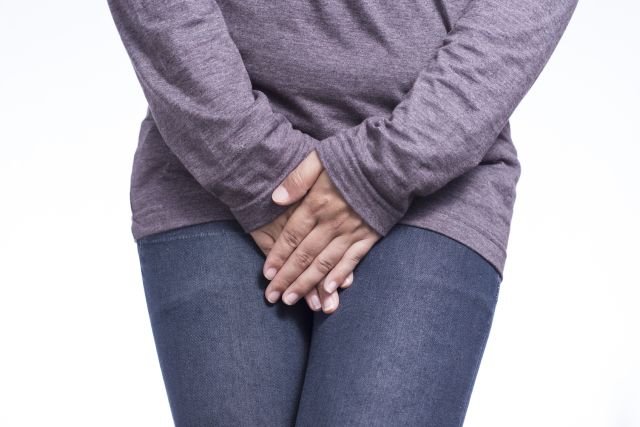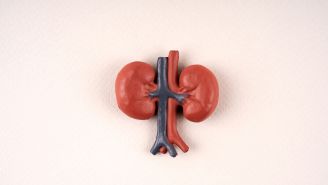Updated on March 1, 2021.
We've all been there: You've gotta go but you're late to a meeting, or you're on a deadline and you really need to finish that project. Or maybe you're on a Netflix binge and you don't want to hit "pause" to pee. Whatever the reason, we’ve all held it in. But how long is too long, and are there health risks? We talked with urologist Scott Martz, DO, from Englewood Community Hospital in Florida to find out.
What’s normal, what's not
During the day, most people need to urinate about every three to four hours, Dr. Martz says. Just how long you can comfortably hold your pee differs for everyone. "If you aren’t staying hydrated, or if you’re losing fluids through perspiration, you may be able to hold in your urine for quite some time,” he says.
At night, most people under age 50 are able to hold urine for about eight hours. When we're younger, our kidneys do a good job of bringing fluid back into our system so we don't get up at night as much, Martz explains. As you get older, though, you may find yourself getting up to make one or two bathroom trips.
Why can I not hold my pee?
If you’re peeing eight or more times over 24 hours, or more than two to three times a night, you may have an overactive bladder. Alcohol and caffeine can contribute, as can spicy or acidic foods, which can irritate the bladder and create the urge to go. See your healthcare provider if you think you may have a problem.
Know when to go
Sometimes waiting to go is unavoidable—and that's okay. While occasionally holding urine for anywhere from 6 to even 24 hours isn't ideal, it's usually not serious, says Martz. Listen to your body: If you’re feeling pain or discomfort, make time for a bathroom break. You may feel an overwhelming urge to cross your legs to keep from peeing, or you may feel full, or feel intense pain in the lower back or abdomen. “If you press on your lower belly and can feel your bladder, you need to go,” Martz says.
And don't make holding it in a habit. "We can see it in certain professions," says Martz. "Teachers, doctors, nurses, truck drivers—they have to hold their urine for long periods of time."
What happens if I hold my pee too often?
Over time, that can lead to health issues, including urinary tract infections (UTIs), kidney damage and more. In fact, if you're holding in your urine again and again, it may become harder to go at all. "The bladder is essentially a muscle," says Martz. It contracts to push urine out. Constantly waiting to pee forces the bladder to stretch to hold more, while it has to squeeze harder to push out the extra volume. Eventually, it may cry uncle. "At some point the bladder may be overwhelmed from the amount of fluid, and it may not be able to empty," Martz says. That's known as urine retention, a condition more common in older men. Women may have trouble with incontinence.
Bottom line: To avoid annoying—and potentially serious—problems, answer nature's call. “You can delay on occasion, but it should not be your norm," says Martz. "It can have some significant side effects later on down the road.”






